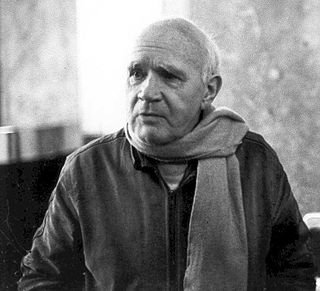A Quote by Angela Davis
One of the reasons that so many people of color and poor people are in prison is that the deindustrialization of the economy has led to the creation of new economies and the expansion of some old ones – I have already mentioned the drug trade and the market for sexual services. At the same time, though, there are any number of communities that more than welcome prisons as a source of employment. Communities even compete with one another to be the site where new prisons will be constructed because prisons create a significant number of relatively good jobs for their residents
Quote Topics
Another
Any
Because
Color
Communities
Compete
Constructed
Create
Creation
Drug
Economies
Economy
Employment
Even
Expansion
Good
Good Job
Jobs
Led
Many
Market
Mentioned
More
New
Number
Old
Old One
Old Ones
People
Poor
Poor People
Prison
Prisons
Reasons
Relatively
Residents
Same
Same Time
Services
Sexual
Significant
Site
So Many People
Some
Source
Than
Though
Time
Trade
Welcome
Will
Related Quotes
The prison-industrial complex employs millions of people directly and indirectly. Judges, prosecutors, defense attorneys, prison guards, construction companies that build prisons, police, probation officers, court clerks, the list goes on and on. Many predominately white rural communities have come to believe that their local economies depend on prisons for jobs.
The war on drugs causes other supplemental crimes to take place because of the original illegality of it. But then again, that's the other reason that they're fighting it is the corporate prisons they have now. Because they've privatized all our prisons, corporations have to make money, and the only way they can make money is, I believe, the prisons have to be at least 80-90 percent full. That's why the United States - which is home of the brave, land of the free - we have more people in prison than any other country in the world.
Most new prison construction has occurred in predominately white, rural communities, and thus a new and bizarre form of segregation has emerged in recent years. Ghetto youth are transferred from their decrepit, underfunded, racially segregated schools to brand-new high-tech prisons located in white rural counties.
You go ask any founder of any company why he or she did it, you will never hear, "I wanted to create jobs for the community" as the number one, number two, number three, number four, number five, number 10 reason for doing so. That is a result of the success the business enjoys. Creating jobs is not why people start businesses. Creating jobs is not how people innovate in business. It's not how they compete.
Non-custodial sentences are certainly something to look at, more support in the community rather than within prisons is something we have to look at. There will of course still be women who need to be in prison, serious offenders, but I think there is scope to look at that number and I think that number could come down.
In 1992, the federal Government actually issued more work authorizations to immigrants and temporary foreign workers than the net number of new jobs created by our economy. Something is fundamentally wrong when we have millions of American citizens and legal residents begging for jobs, and yet we are admitting thousands and thousands of immigrants a year with virtually no consideration to our employment needs or their employment skills.
Most Americans violate drug laws in their lifetime, but the enemy in this war has been racially defined. Not by accident, the drug war has been waged almost exclusively in poor communities of color, even though studies have consistently shown - for decades - the people of color are no more likely to use or sell illegal drugs than whites.
Kids are growing up in communities in which they see their loved ones cycling in and out of prison and in which they are sent the message in countless ways that they, too, are going to prison one way or another. We cannot build healthy, functioning schools within a context where there is no funding available because it's going to building prisons and police forces.
We need to find ways to transform the more than 60 million service jobs, which make up 45 percent of U.S. employment, in the same way - rewarding workers financially, encouraging and empowering creative participation, creating professional communities, and so on. We can look to any number of new companies - from Zappos, to Starbucks, to American Apparel - for examples of how this idea might play itself out. We need to do more to make service jobs into higher-paying family-supporting jobs of the future.
The de industrialization of the US. economy based on the migration of corporations into third world areas where labor is very cheap and thus more profitable for these companies creates on the one hand conditions in those countries that encourage people to emigrate to the US. in search of a better life. On the other hand, it creates conditions here that send more black people into the alternative economies, the drug economies, women into economies in sexual services, and sends them into the prison industrial complex.

































